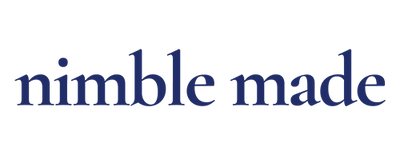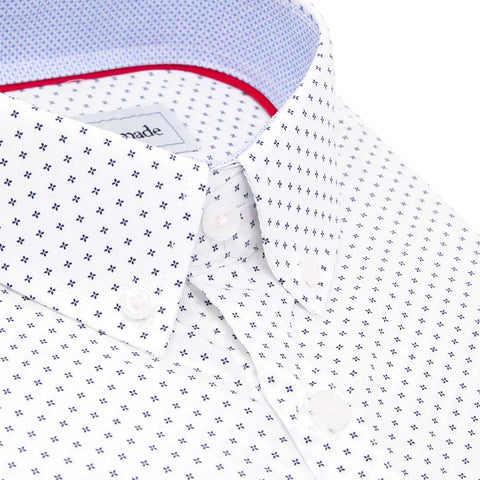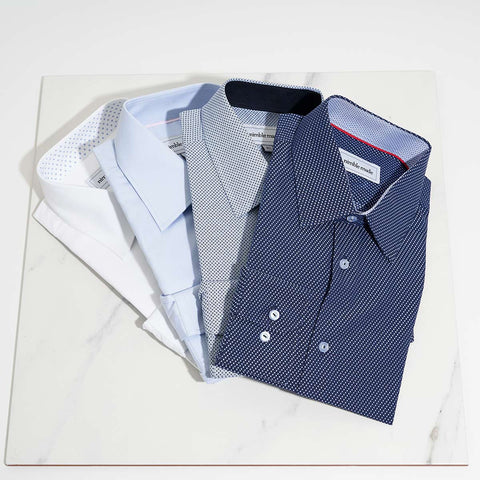
Written by Ben Chuang
Securing an interview for a coveted job opportunity is a significant milestone in any career journey, but the question of interview outfits can often cause stress and uncertainty. Your attire plays a crucial role in making positive first impressions, reflecting your professionalism, confidence, and respect for your potential employer.
In this article, we'll delve into the art of dressing for success, providing practical tips and insights on how to navigate the complex world of interview attire with ease and confidence, whether the interview is in person or on zoom.
From decoding smart casual dress codes to striking the perfect balance between professionalism and personal style, we'll explore the essential dos and don'ts to ensure you present yourself in the best possible light and increase your chances of landing that dream job.

Determine the Dress Code
Determining the dress code for a company you're interviewing for requires a bit of research and observation. Start by visiting the company's website or LinkedIn page to see if they have any guidelines or photos that showcase their typical office attire or business professional dress code, rather than something more relaxed such as business casual.
You can also look at employee profiles, as well as job fair and company photos to get a sense of what people wear to work.
If you know someone who works at the company or has connections through networking platforms, consider reaching out to them for insights on the dress code. Additionally, consider the industry and the level of attire formality typically associated with it.

For example, accounting attire and law tend to have more conservative dress codes, while tech startups may lean towards casual attire. Lastly, when in doubt, it's always better to overdress slightly than to underdress, so opting for professional attire is a safe choice for most job interviews.
Business Professional Interview Attire
In a business professional setting, men should aim for a polished and sophisticated look that exudes confidence and professionalism. Men should wear a well-fitted suit jacket, slim-fit button-down shirt, tie, and slacks along with dress shoes.
When it comes to dress shirts, the key is to choose high-quality, well-fitted options that complement your suit and tie ensemble. Crisp, long-sleeved dress shirts in classic colors such as a formal white shirt, light blue, or subtle stripes are excellent choices for a business professional interview. We explore this topic in depth in our article on best colors to wear for an interview.
Opt for skinny-fit shirts made from quality materials like cotton or a cotton-blend, as they not only look sharp but also feel comfortable throughout the day.
Additionally, ensure that the shirt fits well around the shoulders, chest, and waist without being too tight or too loose. A properly fitted dress shirt will enhance your overall appearance and convey attention to detail.

Complete the business professional look with a coordinated tie, polished dress shoes, and neatly groomed hair and accessories. If you're traveling for the interview, here are a few tips on how to fold a dress shirt for travel.
Women can choose a tailored suit with either pants or a knee-length dress, paired with a coordinating blouse or button-up shirt. Stick to classic colors like black, navy blue, or gray, and avoid overly bright or flashy patterns.
Closed-toe heels or flats are appropriate footwear choices, and minimal jewelry and makeup will help maintain a polished appearance. Remember, the key to dressing appropriately is to project professionalism while also feeling comfortable and confident in your outfit.
Business Casual Interview Attire
For a business casual interview, you want to strike a balance between professionalism and comfort when selecting interview clothes. Men can opt for a pair of well-fitted chino or khaki pants paired with a business casual shirt or a collared shirt. Avoid overly casual materials like denim or overly loud patterns. Adding a blazer can elevate the look if desired.
Women can choose a blouse or a conservative top paired with dress pants, a skirt, or a tailored dress. Cardigans or blazers can add a polished touch. Stick to neutral colors and avoid overly revealing or casual clothing items.
Closed-toe shoes or flats are appropriate footwear choices, and accessorize modestly to complete the look. The goal is to appear polished and put-together while still showcasing your personal style within the confines of business casual attire.
A Note on Ties
Whether or not to wear a tie to an interview depends on the company's dress code and the level of formality expected. In a business professional setting, wearing a tie is typically expected and can help convey professionalism and attention to detail.
However, for a business casual or creative industry interview, a tie may not be necessary and could even appear too formal.
It's essential to research the company culture beforehand and consider the industry norms. When in doubt, it's often better to err on the side of caution and wear a tie, as it can always be removed if it feels too formal once you arrive at the interview.
What Not to Wear to an Interview

There are several items you should avoid wearing to an interview to ensure you make a positive impression. Firstly, avoid overly casual clothing such as jeans, a t-shirt, or athletic shoes, as they may give the impression that you are not taking the interview seriously.
Additionally, refrain from wearing clothing that is too revealing or flashy, as it can be distracting and may not align with the company's professional standards.
Steer clear of clothing with offensive language or graphics, as they can reflect poorly on your judgment and professionalism.
Lastly, avoid wearing strong fragrance, excessive jewelry, or unkempt clothing, as they can detract from your overall presentation and may be perceived as unprofessional. Here's a few guides on how to apply cologne properly and subtly while making that cologne smell last longer.
It's always best to opt for conservative, well-fitted, appropriate attire, that reflects respect for the interviewer and the company.
Frequently asked questions about how to dress for an interview
What are 5 rules for dressing for an interview?
Five rules for dressing for a job interview include: opting for professional attire that fits well, avoiding overly flashy or casual clothing, ensuring cleanliness and neatness, sticking to conservative colors and styles, and paying attention to details like grooming and accessories. Having appropriate interview attire will give you the advantage of making positive first impressions.
What a woman should wear to a job interview?
For a woman wondering what to wear to an interview, a suitable outfit typically consists of a tailored blouse, cardigan, or button-down shirt paired with slacks or a pencil skirt, closed-toe shoes, minimal jewelry, and a blazer or cardigan for a polished look.
It's essential to choose clothing that is comfortable and allows for confidence while maintaining a professional appearance.
Is it appropriate to wear jeans to a job interview?
Wearing jeans for an interview outfit is generally not appropriate unless the company explicitly permits casual attire or if the position is in a creative or informal industry.
It's safer to err on the side of caution and opt for more traditional business attire to make a positive impression on potential employers when considering what to wear to an interview.
How not to dress for an interview?
To avoid dressing inappropriately for an interview, steer clear of clothing that is too revealing, overly casual, or in poor condition.
Avoid loud patterns, excessive accessories, and strong fragrances. It's crucial to dress appropriately in a manner that shows respect for the interviewer and the company, demonstrating professionalism and readiness for the role.





Comments (0)
Back to News